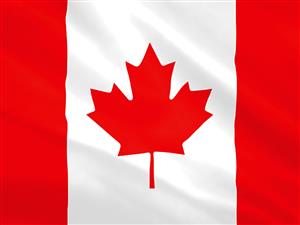Canada: A Premier Destination for Engineering Education
Canada has consistently ranked among the top destinations for students aspiring to pursue engineering abroad. Known for its high academic standards, world-class research, and multicultural campuses, Canada is home to some of the best engineering schools globally, producing thousands of skilled engineers every year.
One of the key advantages for international students is Canada's welcoming immigration policies and post-study work opportunities. Canadian universities actively attract international students and offer scholarships, co-op programs, and paid internships, making education both affordable and career-oriented.
With over 50 globally ranked engineering schools, strong industry links, and excellent job prospects, Canada continues to be a trusted and rewarding destination for engineering education.
Why Choose Canada for Engineering?
- High-quality education with emphasis on practical skills and research
- Globally recognized degrees accredited by CEAB (Canadian Engineering Accreditation Board)
- Co-op programs offering paid, hands-on work experience
- Post-graduation work permit (PGWP) up to 3 years after study
- Pathway to Canadian permanent residency
- Safe, multicultural, and inclusive environment
Quick Facts
| Course Duration | 4 years (Bachelor's), 1–2 years (Master's) |
|---|---|
| Medium of Instruction | English (or French in some regions) |
| Top Accreditation | CEAB (Canadian Engineering Accreditation Board) |
| Tuition Fees | CAD $20,000–$45,000/year (approx. ₹12–₹27 lakhs) |
| Living Expenses | CAD $10,000–$15,000/year (approx. ₹6–₹9 lakhs) |
| Eligibility (UG) | 12th grade with PCM, good GPA |
| Eligibility (PG) | Bachelor's degree in engineering or related field, IELTS/TOEFL |
| Degree Recognition | Globally recognized, CEAB accredited |
Standardized Tests: SAT (Scholastic Assessment Test), ACT (American College Testing), GRE (Graduate Record Examination), TOEFL (Test of English as a Foreign Language), IELTS (International English Language Testing System)
Top Canadian Engineering Universities (2025–26)
- • Lakehead University
- • University of Toronto
- • University of British Columbia (UBC)
- • Laurentian University
- • Lambton College
- • Sheridan University
- • Crandall University
- • Queen's University
- • University of Ottawa
- • Concordia University
- • Dalhousie University
- • University of Windsor
- • Niagara College
- • Ontario Tech University
Eligibility Criteria
📌 Undergraduate (Bachelor's in Engineering)
- Minimum 17 years old by start of course
- 12th grade with Physics, Chemistry, and Mathematics (PCM)
- Competitive GPA (75%+ preferred)
- IELTS/TOEFL for English proficiency
- SAT not required but strong academics are crucial
📌 Postgraduate (Master's in Engineering/MEng/MASc)
- Bachelor's degree in engineering or closely related field
- Strong academic record (GPA equivalent to 3.0/4.0 or 75%+)
- IELTS/TOEFL for English proficiency (minimum IELTS 6.5–7.0)
- GRE not mandatory at most Canadian universities
- Relevant work/research experience is a plus for competitive programs
How to Apply
- Research and shortlist universities & programs
- Check eligibility and application deadlines (Fall intake preferred)
- Take required English proficiency test (IELTS/TOEFL)
- Submit online application with transcripts, SOP, LORs, resume, and passport copy
- Receive admission offer
- Apply for Canadian student visa (Study Permit)
- Book travel and attend pre-departure briefing
Frequently Asked Questions
• Bachelor's in Engineering (B.E./B.Sc.): CAD $20,000–$45,000 per year (approx. ₹12–₹27 lakhs).
• Master's in Engineering (MEng/MASc): CAD $20,000–$35,000 per year (approx. ₹12–₹21 lakhs).
• Co-op and assistantships can help offset costs, while the PGWP allows graduates to earn and recover investments quickly.
• Canada has strong demand for engineers in civil, software, electrical, and mechanical fields.
• Co-op programs during study provide real work experience and connections.
• Graduates are eligible for Post-Graduation Work Permit (PGWP) up to 3 years.
• High employability and pathways to permanent residency make it a very attractive destination.
Application Requirements:
- Academic transcripts (10th & 12th for UG; bachelor's transcripts for PG)
- IELTS/TOEFL scores for English proficiency
- Letters of Recommendation (usually 2–3)
- Statement of Purpose (SOP)
- Resume/CV (for Master's applicants)
- Valid Passport & Photographs
✅ Yes — Degrees from accredited Canadian universities are globally recognized, including in India.
✅ For government jobs or licensure in India, equivalence certificates from AIU may be required.
✅ Professional engineering licensure in Canada requires separate certification through provincial bodies if you plan to practice as a "P.Eng."
- University of Toronto
- University of British Columbia
- McGill University
- University of Waterloo
- University of Alberta
- McMaster University
- Queen's University
- Western University
- Concordia University
- University of Calgary
• Bachelor's: CAD $30,000–$58,000/year
• Master's: CAD $20,000–$35,000/year
• Public universities are more affordable and offer great value, with co-op options to earn while you study.
- Shortlist universities and check program deadlines.
- Take IELTS/TOEFL and gather transcripts, SOP, LORs.
- Apply online through the university portal or OUAC (Ontario).
- Receive admission offer.
- Apply for Canadian Study Permit (visa).
- Arrange housing and travel, then attend orientation.
Frequently Asked Questions
Contact
Contact Us
Address
rajuvolu
russian tuppalu, 535022
Call Us
+91-6304705445
+91-8125423017
Email Us
projectk1international@gmail.com
projectk1international@gmail.com
Open Hours
Monday - Friday
9:00AM - 05:00PM

